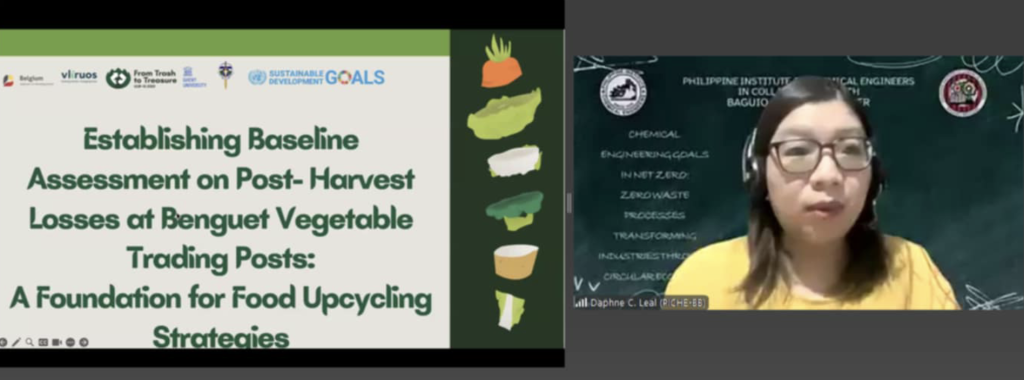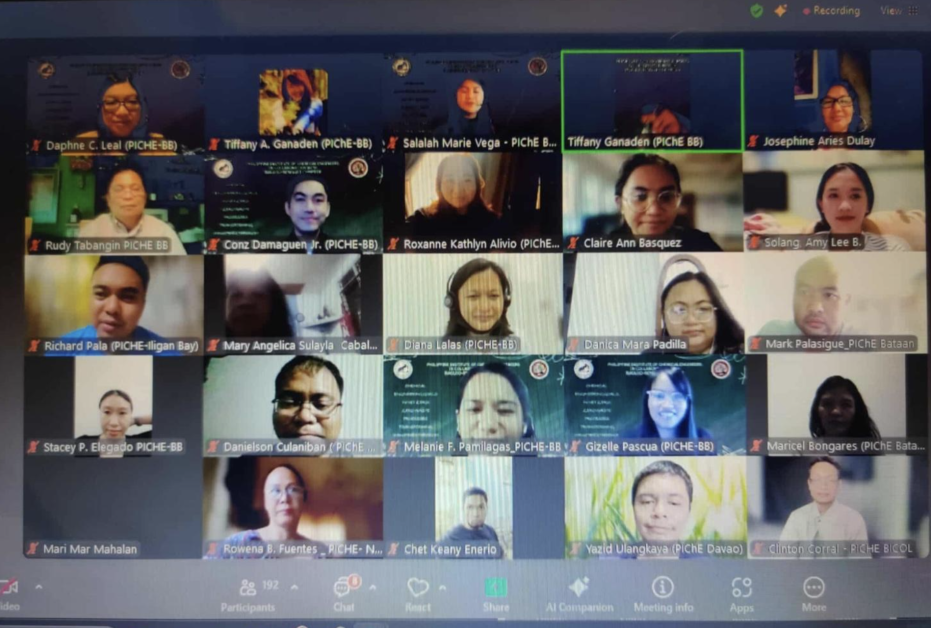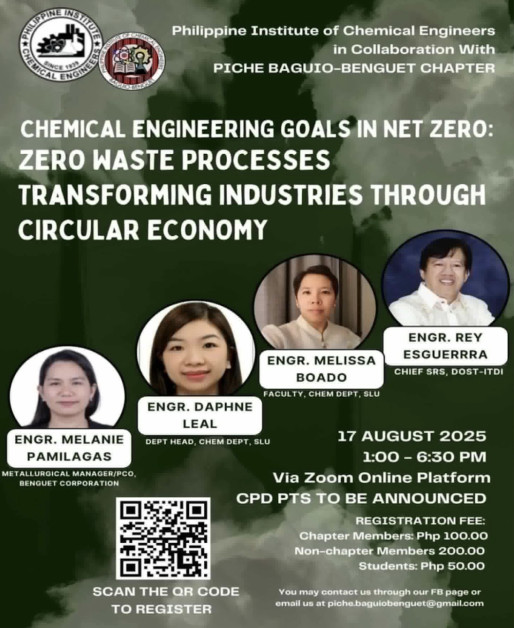The Saint Louis University (SLU)-led project “From Trash to Treasure: Paving Pathways for Food Upcycling to Curb Post-Harvest Losses in the Vegetable Supply Chain of the Cordillera Administrative Region (CAR) in the Philippines” to address SDG 12 (Sustainable Production and Consumption), SDG 2 (Ending hunger and Achieving Food Security), SDG 6 Sustainable Water Management), and SDG 13 (Climate Change), continues to strengthen its advocacy for sustainability through active knowledge-sharing activities.
The said project is funded by the Flemish Interuniversity Council – University Development Cooperation (VLIR-UOS), with the Philippines as a long-standing partner country benefiting from collaborations that connect local universities with Flemish institutions to advance sustainable development.
As part of its commitment to the pillar of Knowledge Valorisation and Transfer, the project was featured in the Philippine Institute of Chemical Engineers (PIChE) Baguio-Benguet Chapter’s national webinar on “Zero Waste Processes: Transforming Industries through Circular Economy” on 17 August 2025.

Representing the project, Engr. Daphne C. Leal of the Department of Chemical and Mining Engineering of the SLU School of Engineering and Architecture (SEA) delivered a presentation titled “Establishing Baseline Data on Post-Harvest Losses at Benguet Vegetable Trading Posts: A Foundation for Food Upcycling Strategies.” She highlighted the extent of vegetable losses in CAR and their environmental impacts, laying the groundwork for upcycling strategies to reduce waste and improve resource efficiency.

Also from SLU, Engr. Melissa Mae Boado presented an innovative zero-waste indoor air solution for carbon capture, further showcasing the University’s contributions to sustainability-focused initiatives.
The participation of Trash to Treasure in PIChE’s professional forum reflects SLU’s continuing commitment to regional and national development. It also provides a platform for collaboration with policymakers, industries, and communities toward circular economy strategies that can benefit Cordillera’s agricultural sector directly. (Article by Engr. Daphne Leal | Photos by SLU RISE)








